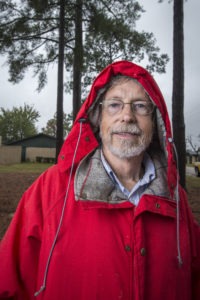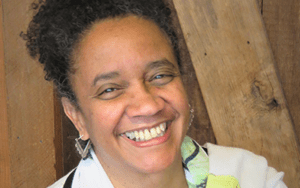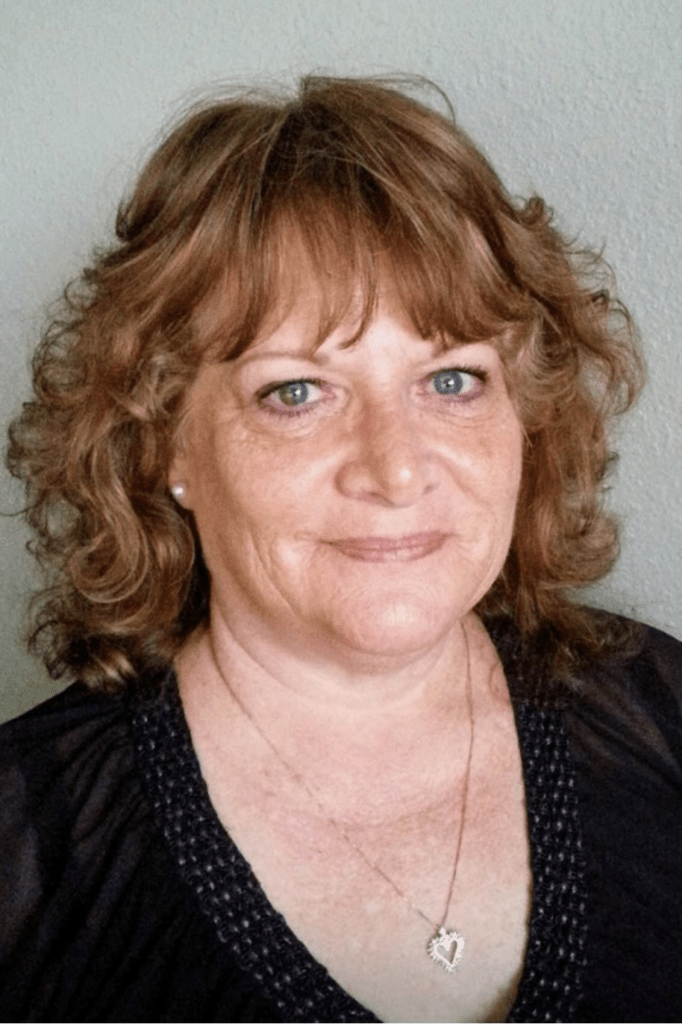Stephany J. Bryan: Peer, Advocate, and Trailblazer for Mental Health and Recovery
Inside this story:
• Stephany Bryan impacted the lives of colleagues and consumers across many areas of mental health and recovery.
• The East Texas Coalition for Mental Health Recovery (2010-2014) elevated the role of peer support in the mental health system.
• The Recovery to Practice initiative (2015-2020) infused recovery principles into the six behavioral health professions in Texas.
• Vida Clinic, a recipient of a Improving Academic Achievement through Mental Health in Schools (2017-2020) grant, provides social and emotional support for students and teachers.
• Communities of Care (2019-present) brings a population health approach to support community resilience, mental health and well-being in the Houston area.
Stephany J. Bryan (October 31, 1956 – February 14, 2021) dedicated her life to supporting and strengthening families and communities through advocacy, education, peer support, and collaboration. During her 13-year tenure as Senior Program Officer and Consumer & Family Liaison at the Hogg Foundation, Stephany touched the lives of colleagues and consumers, both personally and professionally, across many areas of mental health and recovery. Stephany was candid about her own recovery story and comfortable being vulnerable with just about everyone. Her spirit inspired others to be more unapologetic in their advocacy and authentic in their delivery of care and support. Looking back at the initiatives that Stephany worked on, the common thread weaving together these various programs is Stephany: her passion, her tenacity, her authenticity, and her ability to seamlessly connect with those around her, especially those who are struggling or experiencing inequities. The impact Stephany had on the lives of those around her, and the lives of those in the communities her efforts supported, may be impossible to capture, but a look back offers a glimpse of what it was like to know and work with the powerful and soulful Stephany J. Bryan.
Elevating the role of peer support: The East Texas Coalition for Mental Health Recovery (ETCMHR), 2010-2014
One of the earlier initiatives Stephany coordinated in her role as Senior Program Officer and Consumer & Family Liaison was the East Texas Coalition for Mental Health Recovery (ETCMHR). Launched in 2010, the ETCMHR was a pilot program to build leadership in mental health, recovery and wellness, and to increase consumer and family involvement in the Texas mental health system. The program focused strategically on East Texas as an underserved region where the need for a network of consumer leaders in the mental health system is especially great.
“Stephany was determined to do the program in East Texas first,” recalls Gary Bramlett, former Executive Director of the East Texas Behavioral Health Network (ETBHN), which co-coordinated the activities of the ETCMHR with the Hogg Foundation, and current Director of Community Engagement at the Meadows Mental Health Policy Institute. “We often say East Texas is ‘Behind the Pine Curtain,’ meaning it has a culture all its own. Stephany used to say, ‘If we can make the program work there, it can work anywhere.’”
The primary goal of the program — which, by the time it ended in 2014, had granted just over $1,900,000 in awards to support the organizations within ETCMHR — was to provide peer partners who are skilled, knowledgeable, and trained in recovery, in hopes of assisting the mental system in East Texas improve its outcomes and understanding of recovery and wellness. Most importantly, the ETCMHR recruited and trained consumers to become advocates and peer specialists — a component of wellness and recovery that Stephany was particularly passionate about.

Jim Lemon
“As a person who acknowledged that she was a mental health peer and had lived through mental health challenges, she was more sensitive to my need to cultivate my own wellness tools and set my own agenda,” says Jim Lemon, a peer support specialist who coordinated the ETCMHR. “That is pretty rare in the mental health field. Stephany was one of the few people I had over me who really honored my lived experience. I was hired because I was a person in recovery, and working with Stephany, I wasn’t ever ashamed of that.”
Stephany’s lived experience with mental health recovery unlocked ways of connecting with peers that transcended typical professional silos. “She had a lot of fun,” remembers Jim. “She really liked art. She made her version of Fabergé eggs, and they were stunning. I gave her a wooden bowl that I made, and she gave me an egg. Being artistic is one of the ways you convert your internal conflict into things of beauty. I really felt like she honored that in me and honored that in herself.”
Advancing recovery in Texas: Hogg Foundation Recovery to Practice (RTP) initiative, 2015-2020
In 2015, the Hogg Foundation launched its Recovery to Practice (RTP) grant program, awarding $1.2 million in grants to six Texas organizations to coordinate the dissemination of a national RTP curricula developed by the Substance Abuse and Mental Health Services Administration (SAMHSA) in 2009. The aim of the curricula is to incorporate recovery principles into the day-to-day practices of behavioral health professionals. The goal of the Hogg Foundation grant program was to support the organizations in their ongoing work to infuse the RTP curricula across the six behavioral health professions in Texas: psychiatry, psychology, social work, nursing, peer support and addiction counseling.
“Stephany used to say, ‘I’m a peer of the family member, I’m a peer of the substance user, I’m a peer of those struggling with their mental health… I’m a peer. I have peers in all the different areas where peer support is needed.”
Joe Powell, Executive Director of the Association of Persons Affected by Addiction and a champion of peer support and recovery in Texas, recalls working with Stephany as part of this grant program. “Stephany used to say, ‘I’m a peer of the family member, I’m a peer of the substance user, I’m a peer of those struggling with their mental health… I’m a peer. I have peers in all the different areas where peer support is needed.’ That was one of the first things that really stuck with me about Stephany, that she said that. A lot of people don’t get it, and she got it — what peer support really is, and how we support each other in this field.”
Stephany’s ability to connect with those around her was integral to the work she did involving peer support, which depends heavily on relationship building. “She could talk to anybody,” Joe remembers. “There were no barriers there. She didn’t try — she connected.”
Joe recalls his time working with Stephany on the RTP grant program as “effortless:” “I call it the ‘God-deal,’ anytime I have someone like Stephany in my life. There was no struggle when you were with Stephany Bryan,” Joe reflects with a smile. “She made everything simple. That’s part of my recovery: keeping it simple. Stephany fit right into my recovery and advancing recovery in Texas.”
Healthy educators for healthy kids: Improving Academic Achievement through Mental Health in Schools, (2017-2020)
In 2017, as part of the Improving Academic Achievement through Mental Health in Schools initiative, the Hogg Foundation funded a collaboration between the Austin Independent School District and Vida Clinic to promote a culture of sensitivity for children who are distressed, and to promote awareness and wellness among school faculty. Dr. Elizabeth Minne, psychologist and Executive Director of the Vida Clinic, worked closely with Stephany on this project.
“It’s funny: initially, just on paper, she was listed as my main point of contact, but really what developed was a relationship that had such an impact on me personally and professionally,” Dr. Minne recalls. “I didn’t anticipate that developing a relationship with her would have a ripple effect far into my future, far beyond that project.”
With a trauma-informed approach, Vida Clinic established a campus-based mental health system that included programs to help teachers nurture self-improvement, and real-life application of values and skills. Dr. Minne and the staff at Vida Clinic provided individualized, confidential, solution-focused consultation services for teachers in the program.
“The thing that was so awesome about Stephany was that she not only supported that bottom-up approach, she really encouraged it. She really nudged me to take that approach and to innovate and be creative and lift up the voices of the people of our community.”
“In our work, in the programs that I build and the work that I do in the community, I’ve always been about challenging top-down approaches to mental health programming. I tend to lean towards bottom-up approaches —building programs with communities and really centering it around the needs of the communities,” says Dr. Minne. “The thing that was so awesome about Stephany was that she not only supported that bottom-up approach, she really encouraged it. She really nudged me to take that approach and to innovate and be creative and lift up the voices of the people of our community.”
In 2017, Vida Clinic began using empirically validated tools to measure outcomes related to the project. A survey designed to assess teacher attitudes and perceptions related to trauma-informed care showed that those who scored highest on the measure had been attending weekly meetings.
Fostering collaborative approaches to well-being: Communities of Care (2019-present)
In 2019 the Hogg Foundation launched the Communities of Care initiative, which supports collaborative approaches to well-being in the Houston Metropolitan Statistical Area. A total of $11.5 million in grant funds was awarded to eleven organizations over the five-year grant term, which is ongoing. The grants strengthen efforts to transform the environments where people live, learn, work, play and pray, bringing a population health approach to support community resilience, mental health and well-being with a focus on children and youth of color and their families.

Sheila Savannah
Sheila Savannah, Managing Director at the Prevention Institute who worked with Stephany on Communities of Care, reflects on the knack Stephany had for “calling people in” — not “out” — in order to challenge existing systems that weren’t working.
“In systems change work, you have to be a little bit of a rabblerouser,” Sheila says, laughing. “You have to be willing to call out things that are in motion just because they’ve been in motion. You have to be willing to say, ‘Why is that the way things are? Why is that policy the way it is? Why is that practice perpetuated? Is it doing good or is it doing harm?’ Stephany would get that little glimmer in her eye, and she’d be ready to call somebody in or shine the light on something that just doesn’t work.”
Stephany had an eye for detail, and never missed an opportunity to advocate for changes that made systems or processes more equitable. “The way she approached things like budgets always stuck out to me,” Sheila recalls. “We used to laugh back and forth. You can see the true value people place on things based on how they construct their budgets. Both what they put the money towards and the way they talk about it.”
“Some of the planning and definitely the assessment of the progress of COC involved some very long, hard meetings where we all needed to get on the same page,” Sheila says. “At the end of one of those meetings, Stephany was like, ‘Wow, that was hard… It’s bound to make a lot of difference.’ I think she knew that when we were pushing through the hard stuff, it was because the systems need to change on behalf of children and families, and that we had to be willing to do the hard stuff ourselves in order to expect others to do it. Change is tough. That’s when you know you’re working on the right issues. You keep talking about it and working through it until you get to common ground. That takes time, soul searching, and a willingness to make things better. I think that is so characteristic of how Stephany lived her life and how she inspired us to do differently too.”
Sheila and the Hogg Foundation will continue working on the COC grant program through its completion in 2022. Stephany’s passion continues to bolster the grant programs she helped build, and her spirit persists in the hearts and minds of her colleagues, who remember her lovingly and miss her deeply. The impact of Stephany’s lifetime of advocacy will long be felt across the fields of mental health, peer support, and recovery in Texas and beyond.

